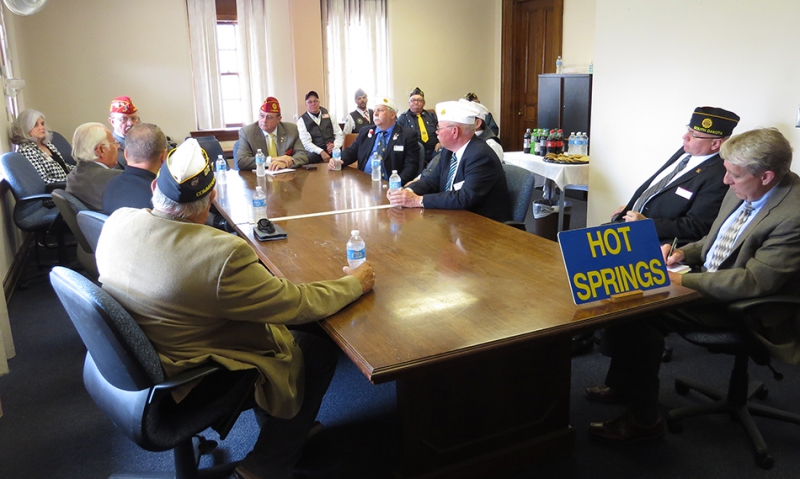
Department of South Dakota commander testifies at a congressional field hearing on necessity of keeping VA care in area.
Tim Jurgens, commander of The American Legion’s Department of South Dakota, told Congress in no uncertain terms at an Aug. 14 congressional hearing that rural veterans in the Black Hills region of his state are in great need of health care provided by the Department of Veterans Affairs.
Jurgens testified at a field hearing in Hot Springs, S.D., held by the House Committee on Veterans' Affairs; the focus was on infrastructure needs and access to VA health care for rural veterans.
VA is proposing to transfer several health care services from its Hot Springs facility to Rapid City, and relying on the private-care medical community in Fall City for additional support. While VA claims the action is justified because of a declining veterans population in the area, Jurgens told the committee that the veterans population in the Black Hills catchment area would decrease by only 41 veterans over the next six years.
“It’s clear that veterans in the Black Hills catchment area value and use the VA,” Jurgens said in his prepared remarks. “Reducing services, and making VA treatment options more difficult to access, violates the agreement our federal government has made with our nation’s veterans.”
With a market penetration about 20 percent higher than the national average, Jurgens said that Black Hills VA medical service “should be championed as a model of efficiency – not targeted for dismantling.”
On Aug. 7, President Barack Obama signed into law the VA Healthcare Access and Accountability Act. One of its provisions is to allow veterans to seek health care in the private sector if they live more than 40 miles from an available VA facility.
Realigning VA services at Hot Springs, Jurgens testified, “will disenfranchise more than 4,000 veterans. Rapid City is more than 60 miles one way from Hot Springs, which means that the vast majority of veterans … will immediately qualify for, and be issued ‘Choice Cards’ and leave the VA system.”
Rather than closing services at Hot Springs and sending so many veterans into the private-care sector, The American Legion wants VA to reconsider its plans. The Legion has made several recommendations to VA, including:
-
Delay closing services at Hot Springs until a new facility is in place, in order to accommodate the health-care needs of veterans in the catchment area and surrounding areas.
-
If the Hot Springs facility should be closed, VA should plan to open a “super-CBOC” in the area to provide both primary and specialty-care services.
-
Future plans should reflect necessary services that veterans in the Hot Springs area need.
“Without viewing a finalized contract with the local hospital in Hot Springs,” Jurgens said, “The American Legion, at this time, cannot ensure reconfiguration of inpatient services will provide the same quality of care that veterans are currently receiving at the Hot Springs Campus.”Jurgens, who became visibly emotional toward the end of his testimony, concluded his remarks
with some sobering facts: every day in America, 82 people commit suicide; 26 percent of those are veterans, yet they only make up seven percent of the population.
“The stakes could not be higher," he said. "Any degradation of services for veterans in this area, especially services associated with mental health, would be tantamount to reckless endangerment.”
The mental health of veterans, Jurgens said, “is something The American Legion takes very seriously, and we adamantly oppose, by resolution, eliminating or reducing services to veterans in the Hot Springs area in any way.”
Read the entirety of The American Legion's written testimony.
- Veterans Benefits

